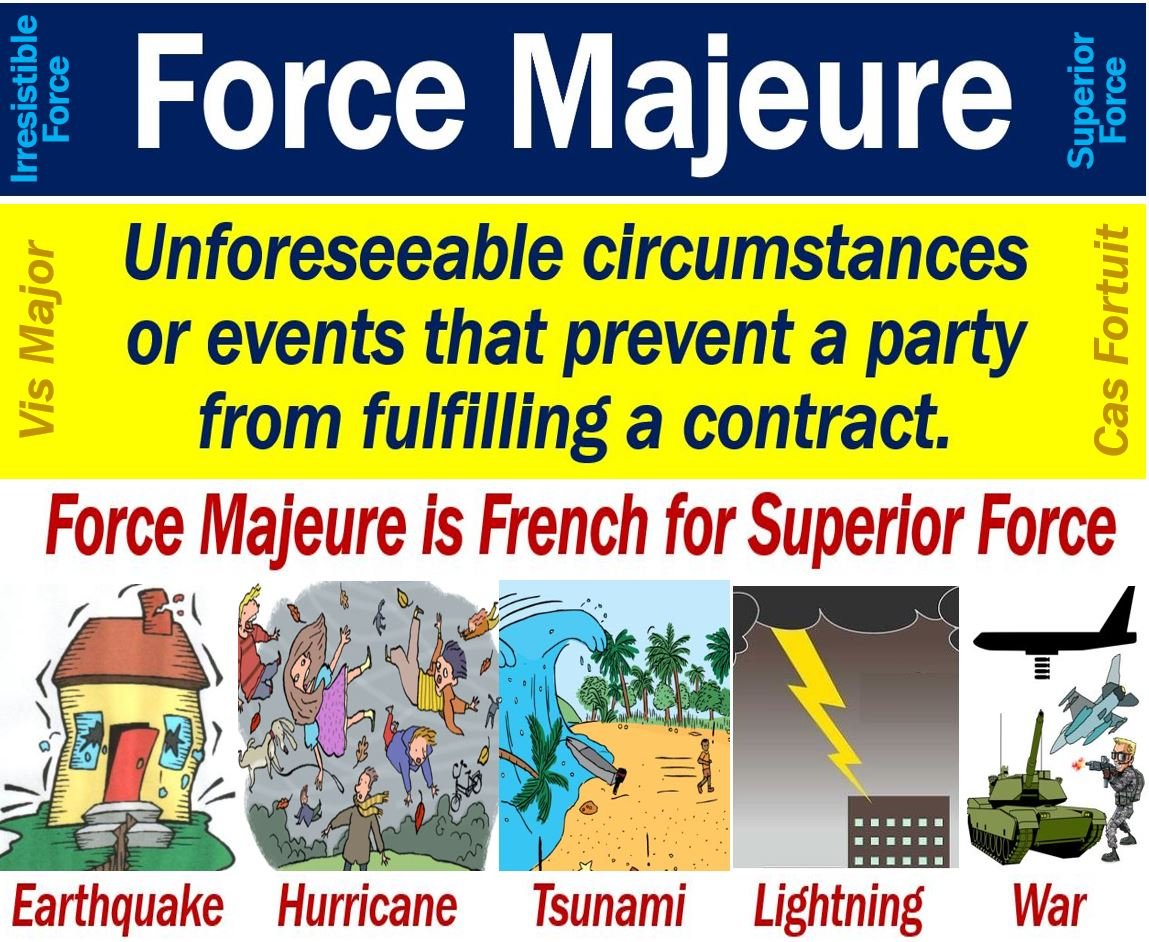Force majeure refers to unforeseeable circumstances that prevent a person or company from fulfilling a contract. The term means ‘superior force.’ We also use the terms irresistible force, vis major, cas fortuit, or casus fortuitus with the same meaning. Cas fortuit and casus fortuitus mean ‘chance occurrence.’
The term is common in supply and construction contracts. It means that the party is exempt from fulfilling its obligation in the contract if something unforeseeable happens. Specifically, if it is something that is beyond their control.
Force majeure includes an act of God, act of parliament or act of man. In legal English, an ‘act of God’ is a natural hazard that is beyond our control, such as a tsunami or earthquake.
The website ContractStandards.com has the following definition of the term:
“A Force Majeure clause (French for “superior force”) is a contract provision that allows a party to suspend or terminate the performance of its obligations when certain circumstances beyond their control arise, making performance inadvisable, commercially impracticable, illegal, or impossible.”
If a contract has a clause for unforeseeable events or circumstances, it means that the parties suspend or terminate their arrangement.
How long the parties suspend their arrangement depends on the details of the contract. It also depends on how long the unforeseeable event or its effects last.

Force majeure – examples
There are dozens of circumstances or events that we class as examples of force majeure.
War, riots, earthquakes, hurricanes, lightning, and explosions, for example, are force majeure events. The term also includes energy blackouts, unexpected legislation, lockouts, slowdowns, and strikes.
Government legislation
Imagine your delivery prices to your customers suddenly go up because of new government legislation.
This unexpected situation, i.e., force majeure, means that you do not have to deliver at that price anymore. In other words, you have the right to negotiate new delivery prices.
Airport terrorist attack
Let’s suppose you have to deliver goods to a customer abroad. You both agree that you send the goods by plane. However, there is a major terrorist attack at their country’s airport.
The major terrorist attack is an unforeseeable event. You didn’t expect it, and there is nothing you can do about it, i.e., it’s beyond your control.
In this case, you would not be liable for the late arrival of your goods. ‘Liable,’ in this context, means ‘responsible.’
